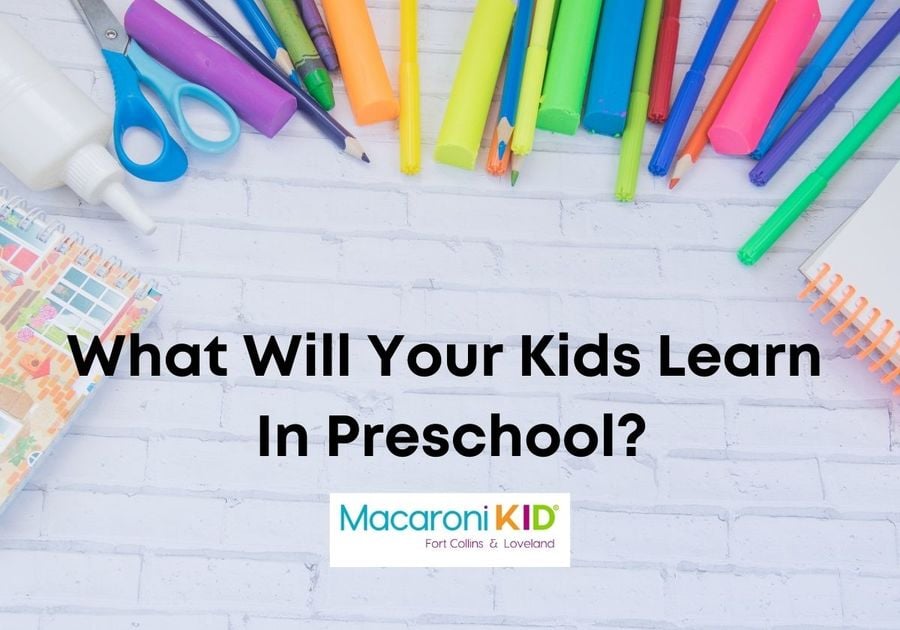Preschool is the place where our kids get to spread their wings for the first time. They truly get to experience some of these skills on their own and in a group of peers.
1. Gross Motor Skills
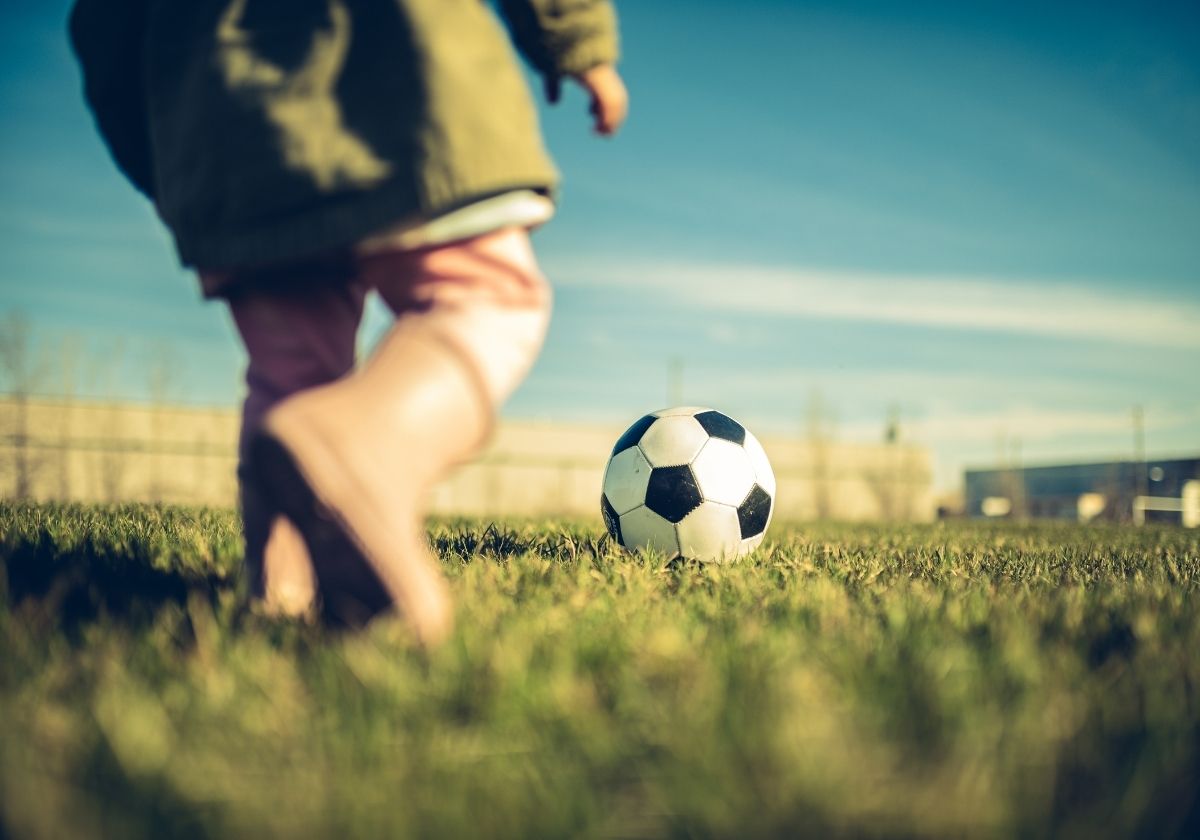
In preschool, your children will be moving nonstop. This helps develop gross motor skills which, is the most important skill to develop first in the early years as it is necessary for all other learning. Hand- eye coordination, agility, vestibular and proprioception translates to balance and body awareness.
Gross motor skills are important in ways you may not consider. Yes, its wonderful for exercise and for fun but it also stimulates learning, improves concentration and delivers oxygen to the brain and works both sides of the brain. Developing good gross motor skills lays the foundations for fine motor skills.
Here are some examples of Gross Motor Activities:
- Playing catch
- Playing hopscotch
- Running and chasing games
- Singing action songs (songs with hand movements or actions)
- Balancing on beams
- Hopping and skipping
- Playing with Bean bags
- Climbing and hanging
2. Fine Motor Skills
This is the development of the small muscles. These skills are a prerequisite to learning how to write and and other everyday tasks.
This is a large part of the preschool day.
Here are some example of fine motor skill activities:
- Drawing
- Cutting
- Threading and lacing
- Painting
- Pasting
- Tracing
- Pegboards
- Puzzles
- Playing with construction toys like Lego or magnetic tiles
- Playing with playdough
- Pencil grip
3. Early Mathematical Concepts
No preschooler learns formal math but they do learn the beginning concepts.
What to preschoolers learn as math basics:
Counting to 20 ( rote counting)
- one to one correspondence
- Classifying
- Sorting
- Time
- Temperature
- Shape
- Length
- Capacity
- Weight
- Area
- Time
- Shape
- Space
How do they learn these things? By playing and having fun in a sandbox, baking, playing with blocks or water, and by cleaning up after themselves and others.
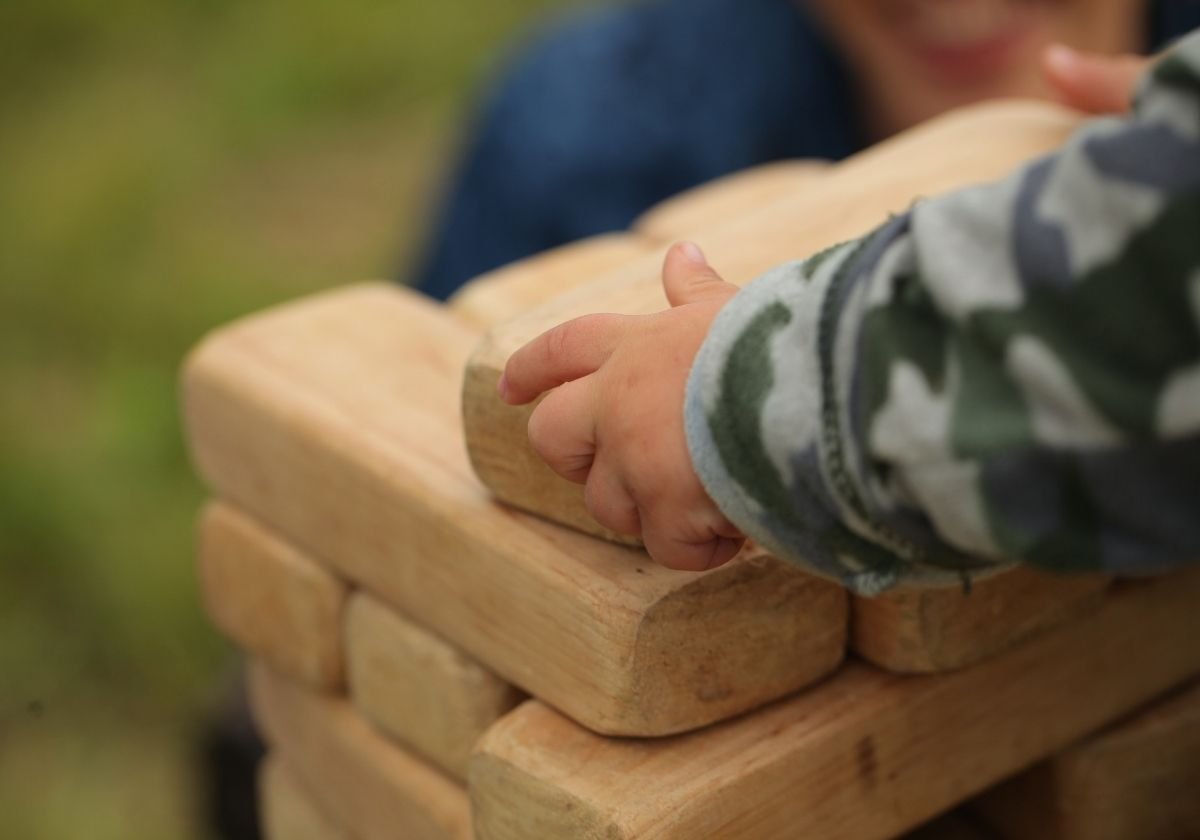
4. Problem Solving
Learning to solve problems is a skill that will follow your child throughout their lives. It must be developed early on. This helps with many things in life including being able to solve mathematical questions.
These simple activities will help develop Problem solving:
- Building or constructing things
- Puzzles
- Board games
- Problem solving during social play
5. Language and Vocabulary
Your child's vocabulary and communication skills will really sprout in Preschool. They learn sentence construction, grammar and tenses and the meaning of words.
How are these skills nurtured?
- By singing and rhymes and songs
- Playing games
- Having circle time and discussions
- Learning about themes
- Listening to Stories
- Playing with friends and alone
6. Pre-Writing Skills
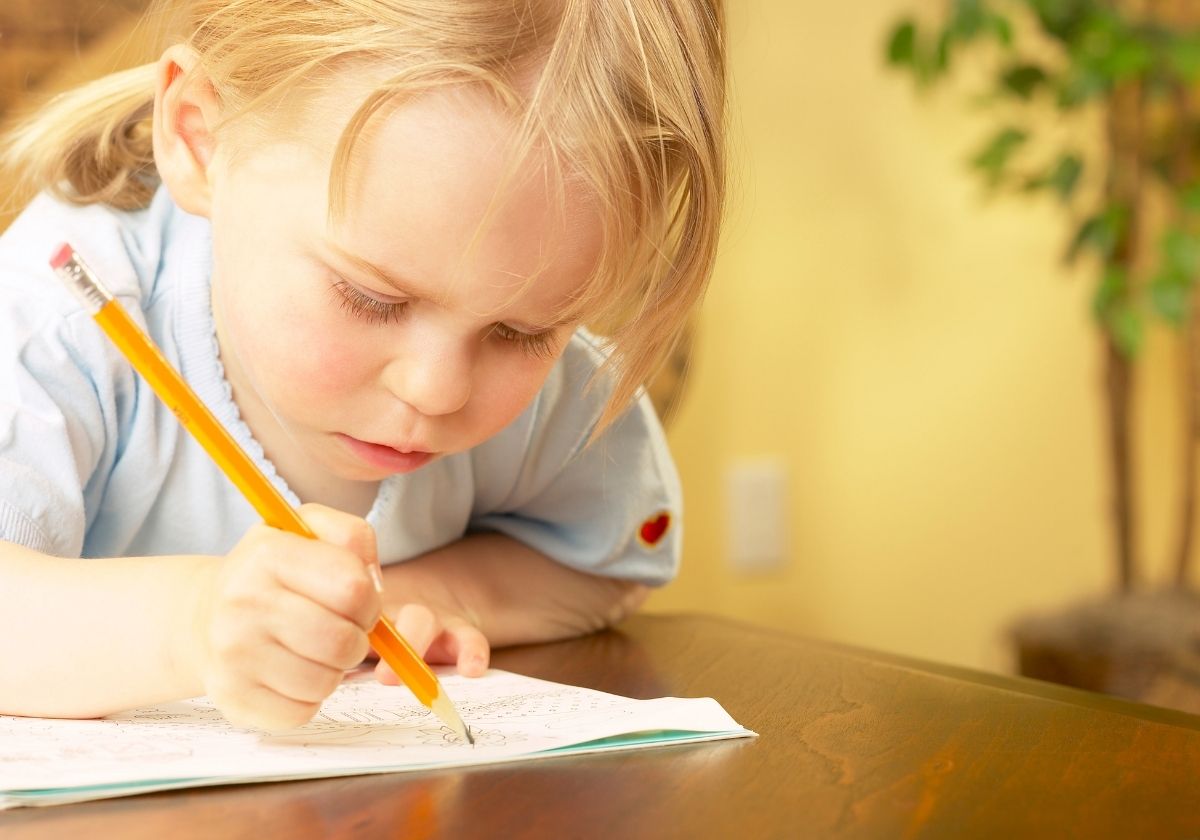
Here are four specific requirements for learning to write and be focused:
- Pencil grip
- Crossing the midline
- Learning letter formation through play like tracing in sand or finger painting
- Forming patterns through drawing zig zags or big waves, shapes and movements that mimic the formation of letters.
7. Listening Skills
This is one of the most important skills children will learn in preschool.
These activities help develop listening skills:
- Listening to stories
- Discussions in class
- Playing games with verbal instructions
- Activities with music
Listening skills play an incredibly important role in cognitive development.
8. Musical Skills
It's more than just having fun and learning cute songs.
Music is important in developing the following:
- Vocabulary
- Concentration
- Gross motor skills like action rhymes
- Fine motor skills with finger play songs
- Mathematical skills with counting rhymes
- Understanding rhyme, syllables, and sounds
- Decision making skills with games like musical chairs.
9. Visual Perceptual Skills
The two main building blocks to learning to read are auditory and visual perception.
Visual and auditory perception are the two main building blocks of learning to read.
These are some examples of visual perception games:
- Puzzles
- Tangrams
- Memory games
- Card Games
- Patterning activities
- Games teaching shapes and colors
10. Auditory Perceptual Skills
This is vital to being able to learn sounds for reading. This is the ability to make sense of what your child's ears hear.
These are some ways to help develop auditory perception:
- Playing instruments is a wonderful way to develop auditory perception
- Playing sound games
- Playing word games
- Reciting rhymes and poems
11. Pre-Reading Skills
Auditory perception (sound knowledge)and visual perception (symbol knowledge) are key in pre-reading skills.
How does Preschool expose children to these skills?
- Playing rhyming games
- Listening games
- Syllables games
- Following games with single to multiple instructions
- Playing word games
12. Early Science Concepts
Hands on science fun and basic concepts are fun ways to learn how the world works.
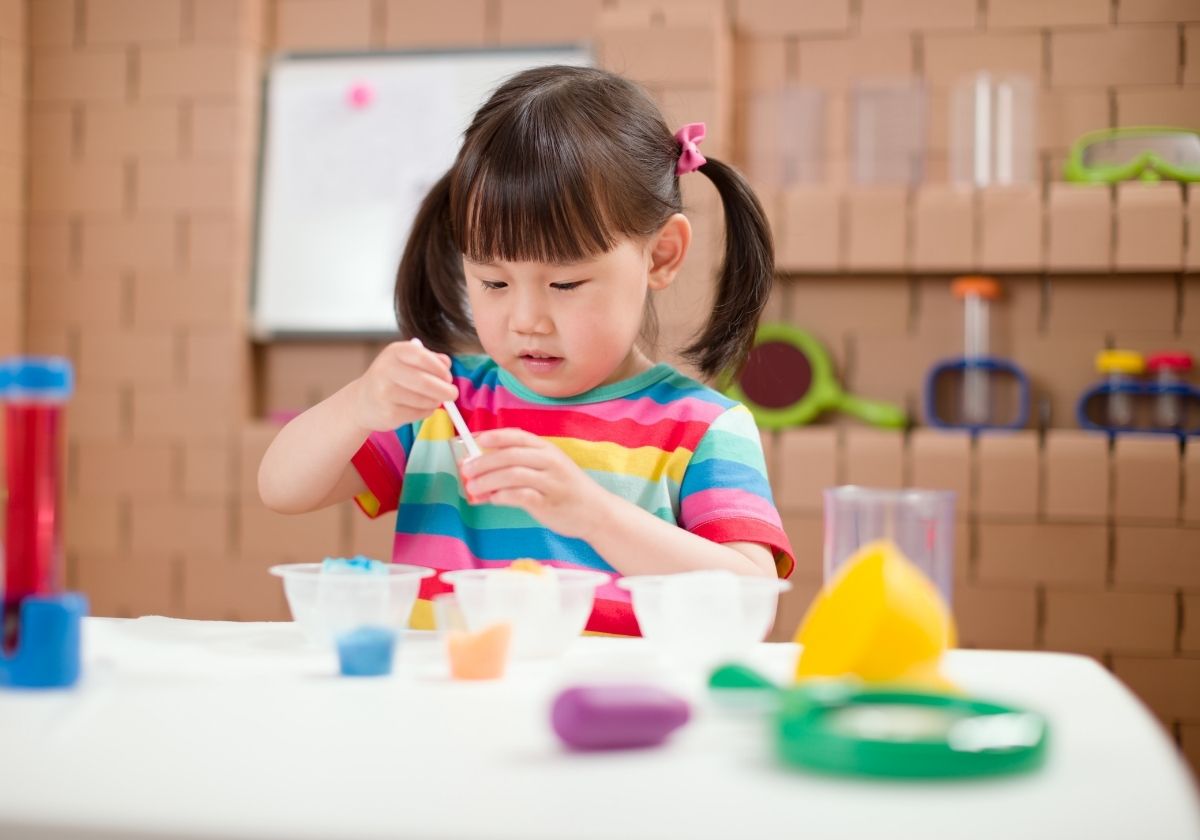
Each preschool does this differently but there are so may ways to learn science concepts:
- Water play
- Sand play
- Sensory bins
- Gardening
- Bug transformations
13. Social Skills
This is the first place many children learn about social skills in groups. They learn to interact appropriately with everyone around them.
It's easy to learn the following in Preschool just by showing up:
- Sharing
- Showing empathy
- Becoming aware of others opinions
- Taking turns
- Cooperating
- Taking Turns
- Waiting for your turn
- Leading and Following
- Conflict resolution
- Following instruction and rules
- Encouraging positive interactions
15. Creative Expression & Self Expression
Your child's creative spark is ignited through play, art, and other activities.
Here are a few ways that your child gets to express themselves at Preschool:
- Art opens up creative expression
- Music activities like singing, dancing and playing with instruments
- Playing with toys
- Building with toys and crafts
- Roll playing with dolls and other toys
- Dressing up
- Building small and large items (Lincoln logs vs. forts)
- Playing indoors and outside
15. Independence
With parents being out of sight and being on their own children learn to be more independent. They begin to learn about themselves, their boundaries and the boundaries of those around them.
What opportunities allow your child to gain their own independence?
Clean up time
Keeping track of their own items (shoes coats etc)
Self care like bathroom time and washing hands
Choosing their own activities throughout the day when permitted
Being accountable for their actions both good and bad.
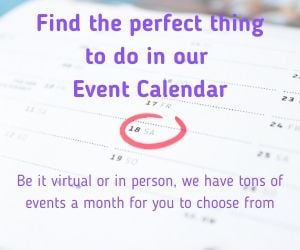 |  |  |  |

